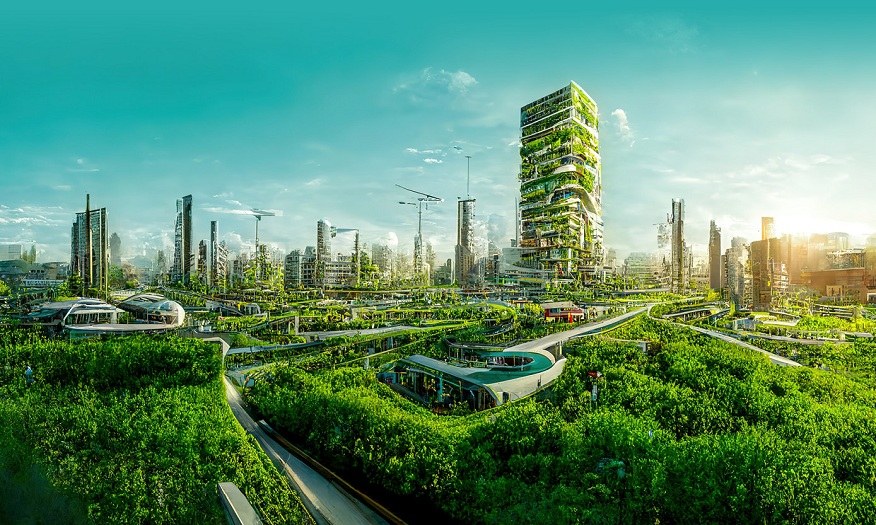The surge in urbanization has fueled the demand for efficient management systems within residential communities. As cities grow, the need for streamlined operations, effective communication, and resource optimization becomes paramount. This demand has led to the integration of various technological solutions, including the best society management app, house rental management systems, and the Internet of Things (IoT), shaping the landscape of smart cities.
Society Management Apps: Revolutionizing Community Living
Society management apps have emerged as an integral tool for fostering seamless communication and resource management within residential complexes. These apps offer a plethora of features benefiting both residents and administrators. Residents can easily communicate with neighbors, book facilities, manage payments, and report issues through these platforms. Simultaneously, administrators can streamline operations, allocate resources efficiently, and bolster security measures, all within a centralized digital ecosystem.
House Rental Management Systems: Redefining Landlord-Tenant Interactions
In parallel, the house rental management system has transformed the dynamics of rental properties. Landlords and tenants now have access to platforms that simplify property listings, streamline tenant management, automate payment processing, and facilitate smoother communication. These systems offer landlords efficient tenant screening, payment automation, and maintenance tracking while providing tenants with simplified rent payments and swift issue resolution channels.
IoT in Residential Spaces: The Rise of Smart Homes
The advent of the Internet of Things (IoT) has introduced a new era of smart living in residential areas. IoT devices encompass smart home technologies that optimize energy consumption, bolster security, and enhance convenience. From smart thermostats and security cameras to energy-efficient lighting systems and leak monitoring devices, IoT and smart cities empower residents to create safer, more energy-efficient living environments.
Through these innovations, residents can remotely monitor and control various aspects of their homes, promoting sustainability and safety while ensuring a more comfortable lifestyle.
Impact on Smart Cities: Paving the Way for a Brighter Future
The amalgamation of society management apps, house rental management systems, and IoT technologies is reshaping cities into smarter, more efficient entities. This convergence optimizes resource allocation, enhances infrastructure maintenance, and promotes sustainability. It results in improved quality of life for residents, offering convenience, safety, and environmental consciousness.
Cities worldwide are embracing these technologies, utilizing data analytics and AI to optimize operations and pave the way for smarter urban planning. Case studies of cities like Singapore, Barcelona, and Amsterdam showcase the tangible benefits achieved through the integration of these systems.
Title: Embracing the Future: Unveiling the Benefits of IoT and Smart Cities
In our technologically evolving world, the Internet of Things (IoT) has emerged as a transformative force, and its integration into the concept of smart cities is revolutionizing urban landscapes. By interconnecting devices, systems, and people, IoT-enabled smart cities are fostering efficiency, sustainability, and enhanced quality of life for inhabitants. This article explores the multitude of benefits that IoT brings to the table and how it’s shaping the cities of tomorrow.
### 1. **Enhanced Connectivity and Efficiency**
IoT enables seamless connectivity between various devices and systems, facilitating efficient communication. Smart cities leverage this interconnectedness to optimize traffic management, reduce energy consumption, and streamline waste management processes. With sensors embedded in infrastructure, city planners can gather real-time data to make informed decisions, leading to smoother traffic flow, reduced carbon footprint, and resource optimization.
Improved Infrastructure and Resource Management
The integration of IoT technology in smart cities empowers administrators to monitor and manage critical infrastructure components proactively. From water supply systems to electricity grids, IoT sensors provide real-time data on usage patterns, leakages, and potential failures. This data-driven approach enables swift responses to issues, ensuring better resource allocation and improved infrastructure maintenance.
Sustainable Practices and Environmental Benefits
Smart cities leverage IoT to promote sustainability initiatives. Efficient waste management systems utilizing IoT sensors optimize waste collection routes, reducing fuel consumption and emissions. Additionally, smart energy grids help regulate power usage by analyzing consumption patterns, thus promoting energy conservation and reducing environmental impact.
Enhanced Public Safety and Security
IoT plays a pivotal role in augmenting public safety measures. Smart cities employ sensor networks for surveillance, crowd monitoring, and emergency response systems. These advancements not only aid law enforcement agencies but also ensure faster responses during emergencies, contributing to a safer urban environment.
Empowering Citizens with Real-Time Information
IoT-enabled smart cities empower residents by providing them with real-time information on various aspects of city life. Applications and platforms offer data on public transport schedules, air quality, parking availability, and more. This accessibility helps citizens make informed decisions and enhances their overall quality of life.
Economic Growth and Innovation
The implementation of IoT in smart cities fosters innovation and economic growth. It creates opportunities for tech companies and startups to develop new solutions and services tailored to urban needs. Moreover, the efficiencies gained from IoT integration attract businesses, leading to job creation and economic development.
Healthcare and Well-being Advancements
IoT-enabled healthcare systems in smart cities provide personalized and remote healthcare services. Wearable devices and connected medical equipment allow for continuous health monitoring, enabling early detection of health issues and prompt medical interventions. This proactive approach to healthcare contributes to improved well-being among city dwellers.
Conclusion
The fusion of IoT technology with the concept of smart cities holds immense potential for reshaping urban environments. From optimizing resource management to fostering innovation and sustainability, the benefits are vast and promising. However, challenges like data security, privacy concerns, and equitable access to technology need addressing to ensure inclusive and responsible implementation.
As we tread further into the digital era, embracing IoT in the development of smart cities not only enhances efficiency but also creates a more livable, sustainable, and connected urban future for generations to come.
Conclusion
As technology continues to evolve, the integration of society management apps, house rental management systems, and IoT devices will play an instrumental role in shaping the future of urban living. These innovations not only enhance efficiency and convenience but also lay the foundation for sustainable and interconnected smart cities, offering a higher quality of life for their residents.

